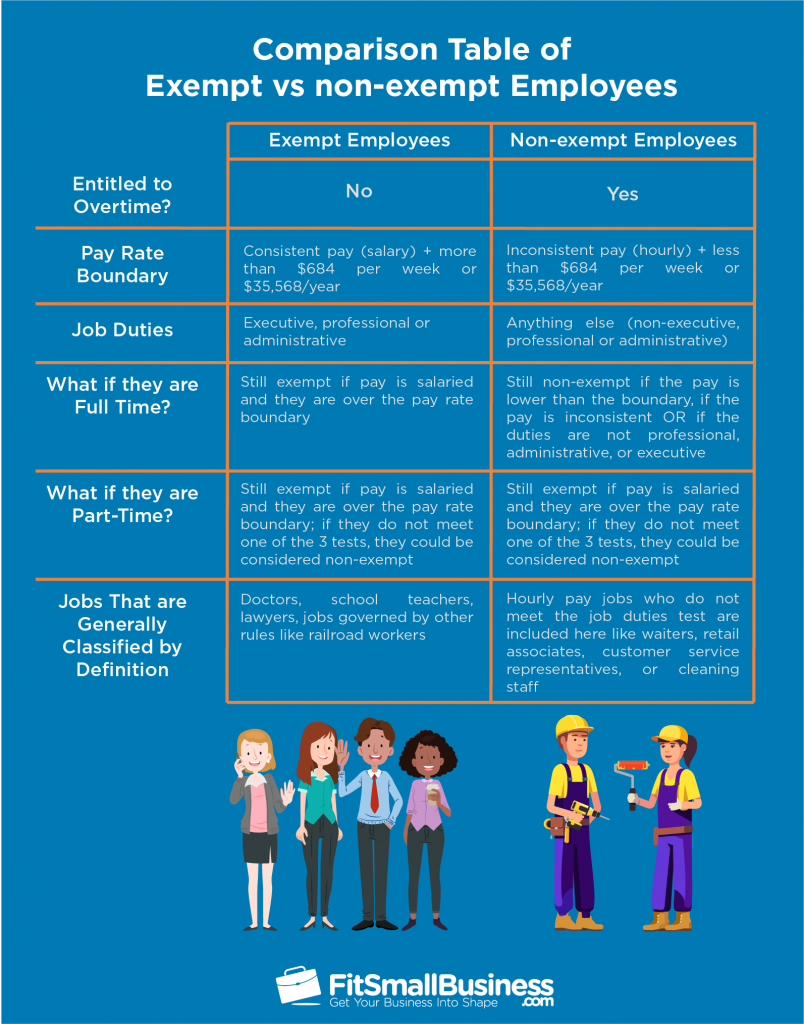

That's why the FLSA sets out to ensure compensation standards for these positions, since occasionally the hours can fall short of - or exceed - the 40-hour work week.įor a worker receiving hourly pay, the FLSA standard creates overtime compensation, measured as time and a half - the hourly rate plus half. On the other hand, non-exempt workers are typically paid on an hourly basis and receive overtime pay for any hours worked over the standard 40 per week - although some states have their own laws that vary from this general rule.ĭue to the nature of many non-exempt job positions, hourly pay often makes more sense than a fixed annual salary. Their annual salary is often a negotiable figure that is agreed upon before the job is accepted and doesn't fluctuate even if the employee works fewer than 40 hours in a week. Per the FLSA, exempt employees are typically salaried workers and do not receive overtime pay. Pay differences for exempt and non-exempt workers Some blue-collar professions may include:īlue-collar, non-exempt workers perform skill-based work and trades, but they do not qualify as exempt because their occupation doesn't meet the standards of job duties that carry exempt status. Of course, there are also office workers who are non-exempt, but there are few, if any, labor-intensive positions that carry exempt status. These workers often gain the skills and knowledge to perform their jobs through on-the-job training and apprenticeships. In contrast, some workers with FLSA non-exempt status work in occupations many consider to be “blue collar," which tends to refer to trade and labor-oriented work. Of course, many non-exempt workers may perform some of these duties, but through the FLSA, exempt status must meet these criteria and others related to compensation. Professional workers (that is, learned/knowledge-based positions).These white-collar, FLSA-exempt duties often include the types of work done by:

Specific job duties defined by FLSA guidelines help make the determination about a position's exemption status. blue collar: How do they apply to FLSA?įLSA exempt employees are often, but not always, workers whose jobs are sometimes referred to as “white collar," which usually boils down to the fact that they mostly work in an office setting. The first step to determining whether an employee may be eligible for overtime under the FLSA is to figure out if they are either "exempt" or "non-exempt." The reason being, employers typically aren't required to pay exempt employees overtime.īut what, exactly, is the different between exempt and non-exempt employees? Let's dig into that. While some states may have their own overtime laws, the FLSA applies nationwide. If you've never heard of the FLSA, it's the legislation that governs when an employer is required to pay an employee overtime, among other things. In the United States, the Fair Labor Standards Act (FLSA) applies to the majority of employers and employees.


 0 kommentar(er)
0 kommentar(er)
